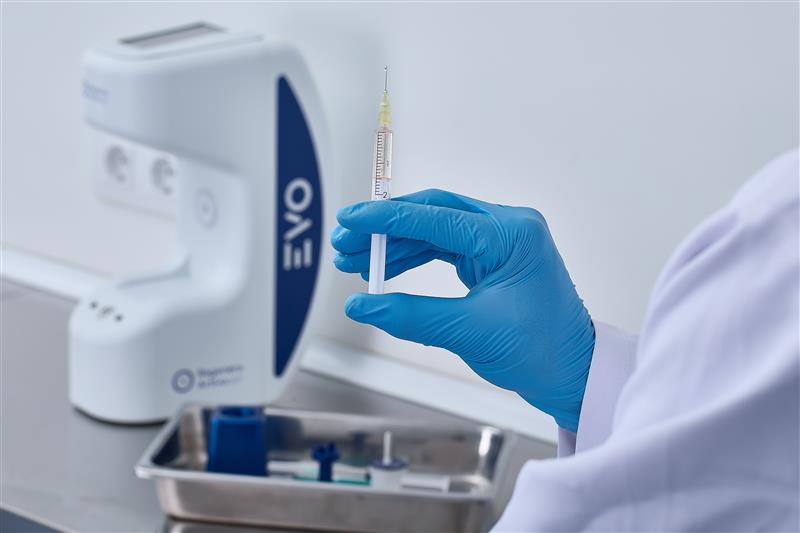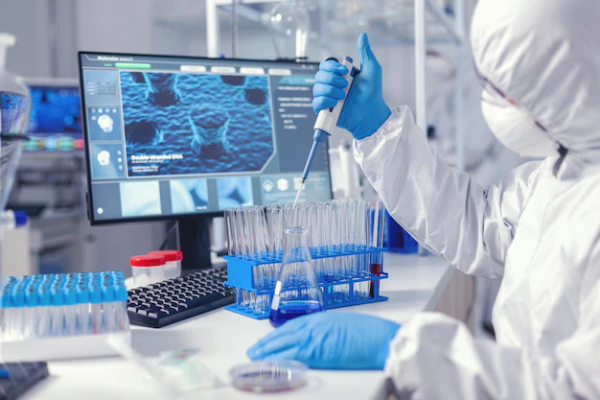Exosomes are nanometric extracellular vesicles secreted by eukaryotic cells that facilitate intercellular communication. These submicroscopic structures transport a complex molecular cargo, including proteins, lipids, messenger RNA (mRNA), microRNA (miRNA), and other essential biomolecules. Due to their ability to mediate molecular exchange between cells, exosomes play a fundamental role in biological processes such as immune response regulation, tissue repair, and inflammation modulation, making them essential in biomedicine and regenerative therapies.
What are exosomes and what biochemical processes do they participate in?
Exosomes act as carriers transporting vital molecules, enabling cell-to-cell communication, crucial for maintaining cellular homeostasis and adaptive responses to pathological stimuli. They actively participate in tissue repair, cell growth, and inflammation modulation, making them key players in regenerative medicine treatments.
Do all cells produce exosomes?
Yes, all cells have the ability to release extracellular vesicles like exosomes, though the quantity and functional significance varies by cell type. Tissues with high cellular turnover and active intercellular communication needs, such as the liver, kidneys, and central nervous system, tend to produce and release more exosomes, enhancing their functional importance.
How can exosomes be identified in a biological sample?
Exosomes are identified in biological samples using specific cellular markers, such as CD9, CD63, and CD81, which are present on the surface of these extracellular vesicles. Additionally, exosomes are distinguished by their size (30–150 nanometers), allowing them to be differentiated from other extracellular vesicles, such as microvesicles and apoptotic bodies.
Autologous vs. Non-Autologous Exosomes
-
Autologous exosomes are derived from the patient's own cells, minimizing the risk of adverse immune responses and improving biocompatibility. These exosomes reflect the individual's specific molecular state and are ideal for regenerative medicine applications, as they adapt to the patient’s unique needs.
 One innovative example is Regenera Activa’s autologous micrografting procedure, where exosomes are naturally obtained from the patient’s own tissue without any manipulation, along with other biologically active components such as progenitor cells and growth factors. Because the process occurs entirely within the same 30-minute session, with no laboratory processing or modifications, it is completely safe and ensures maximum biocompatibility. This rich regenerative composition is reinjected into the scalp to promote tissue regeneration and hair follicle restoration, making it a promising approach for addressing androgenetic alopecia.
One innovative example is Regenera Activa’s autologous micrografting procedure, where exosomes are naturally obtained from the patient’s own tissue without any manipulation, along with other biologically active components such as progenitor cells and growth factors. Because the process occurs entirely within the same 30-minute session, with no laboratory processing or modifications, it is completely safe and ensures maximum biocompatibility. This rich regenerative composition is reinjected into the scalp to promote tissue regeneration and hair follicle restoration, making it a promising approach for addressing androgenetic alopecia.
-
Non-autologous exosomes, on the other hand, originate from external sources such as donor-derived mesenchymal stem cell cultures or genetically modified cell lines. While these exosomes are available in larger quantities, their use requires additional safety considerations. 7
Why are exosomes important in regenerative medicine?
Exosomes are transforming regenerative medicine due to their ability to promote tissue regeneration and cellular repair. They contain growth factors, cytokines, and microRNAs that stimulate cell proliferation, differentiation, and angiogenesis—all essential processes for the recovery of damaged or aging tissues.
Benefits of exosomes in regenerative medicine therapies
-
Autologous exosome-based therapies eliminate the risk of immune rejection, enhancing treatment biocompatibility.
-
Their small size allows efficient penetration into tissues and biological barriers, optimizing the targeted delivery of proteins, lipids, and RNA.
-
This not only improves therapeutic effectiveness but also enhances the precise distribution of molecules to target cells.
What diseases are being researched for exosome-based treatments?
Currently, over 380 clinical trials are investigating exosome-based therapies across various conditions, including:
-
Cardiovascular diseases
-
Androgenetic alopecia
-
Neurodegenerative disorders
-
Osteoarthritis
-
Liver damage
-
Inflammatory diseases
Exosomes are proving to be a key therapeutic tool in regenerative medicine, showing promising results in early clinical trials.
What does the future hold for exosome research?
The future of exosome research in regenerative medicine is promising. With continuous advancements in biotechnology and bioengineering, a deeper understanding of their function and optimization of their use in personalized therapies is expected. This will unlock new possibilities for effective and tailored treatments for various currently incurable diseases.
References:
-
Hegmans JP, Gerber PJ, Lambrecht BN. Exosomes. Methods Mol Biol. 2008;484:97-109.
-
Garcia-Martin R, Brandao BB, Thomou T, Altindis E, Kahn CR. Tissue differences in the exosomal/small extracellular vesicle proteome and their potential as indicators of altered tissue metabolism. Cell Rep. 2022 Jan 18;38(3):110277.
-
Andreu Z, Yáñez-Mó M. Tetraspanins in extracellular vesicle formation and function. Front Immunol. 2014 Sep 16;5:442.
-
Gao J, Li A, Hu J, Feng L, Liu L, Shen Z. Recent developments in isolating methods for exosomes. Front Bioeng Biotechnol. 2023 Jan 13;10:1100892.
-
Campanella C, Caruso Bavisotto C, Logozzi M, Marino Gammazza A, Mizzoni D, Cappello F, Fais S. On the Choice of the Extracellular Vesicles for Therapeutic Purposes. Int J Mol Sci. 2019 Jan 9;20(2):236.
